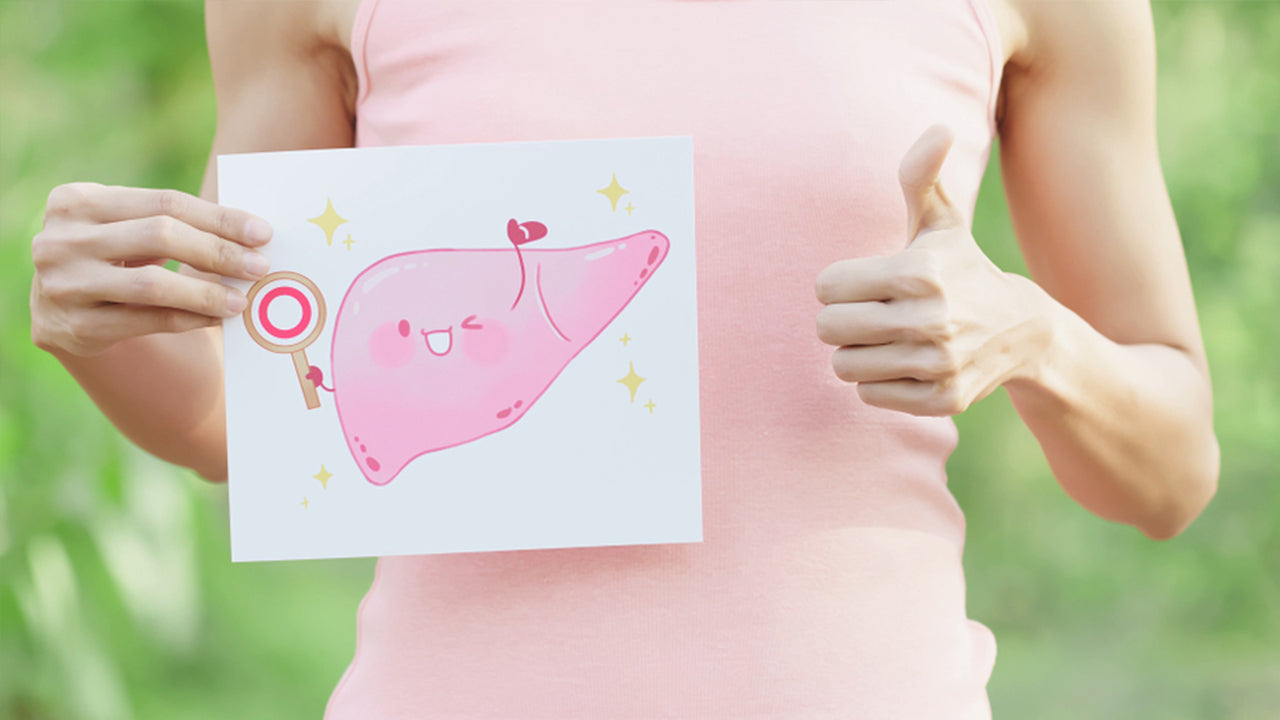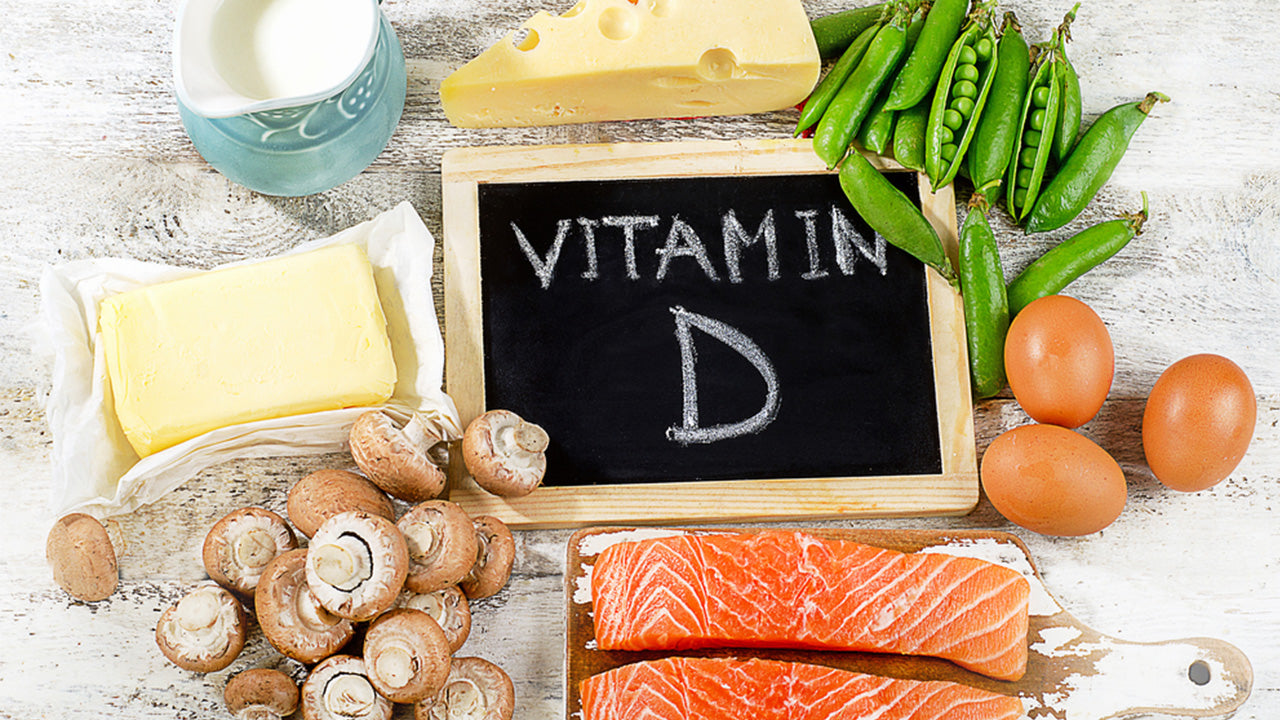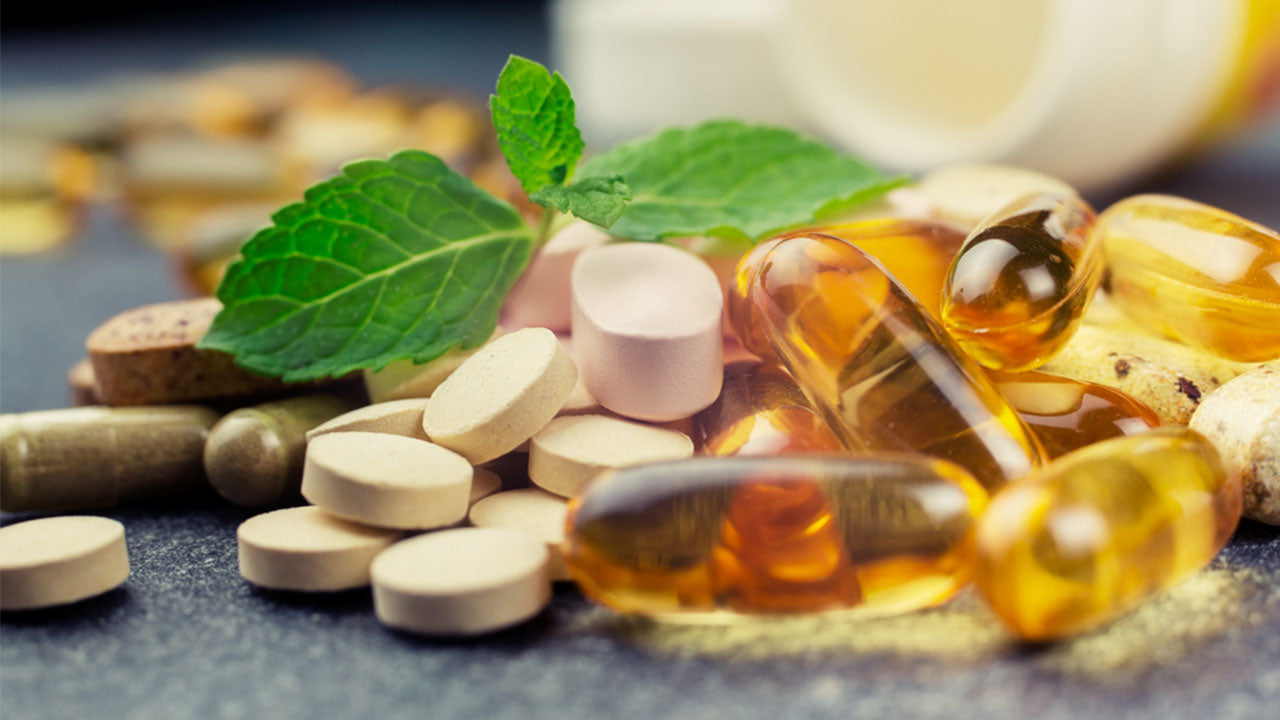The Top Vital Supplements and Vitamins for Liver Health
 By: by Amino Science
By: by Amino Science

The liver is our largest organ, and it's appropriately named because we cannot live without it. The liver's role in human health is to metabolize what comes into our bodies, turning food into energy and filtering out toxins from the blood. Maintaining a healthy liver involves first avoiding intoxicants and poisons as much as possible, and second providing your liver with the essential nutrients it needs to function. On top of that, there are some natural ingredients that help the liver better perform its important duties. We have the information on the most vital supplements and vitamins for liver health here.
How to Support Liver Function
Diseases like alcoholic fatty liver disease, non-alcoholic fatty liver disease (NAFLD), and viral hepatitis damage the liver and sometimes cause life-threatening health problems. Even without a medical condition impacting your liver, certain dietary choices and deficiencies can interrupt the liver's detoxification processes and have a dampening effect on your overall health.
Luckily the liver is a resilient organ, able to heal and revive the way that other organs (like the heart and the kidneys) cannot. If you're worried that something is seriously wrong with your liver, it's important to consult a health care professional for medical advice, but if you're just looking to support your liver with the proper vitamins and dietary supplements, we have a list of the ones you may need.

The Best Supplements and Vitamins for Liver Health
Working in conjunction with your other digestive and detox organs, the liver is a real powerhouse, not least because it has the ability to store certain vitamins and nutrients for emergency use (iron, copper, and vitamins A, B12, D, E, and K). Eating a liver flush diet is one way to help the liver function, providing it with the antioxidants needed to fight off damaging free radicals. Another way to aid liver detox is to know which vitamins are most important for inclusion in a multivitamin and which natural ingredients can help the liver work to its best abilities.
Vitamin A and Iron
Deficiencies in vitamin A and iron are some of the most common dietary deficiencies worldwide. Together they help guard against iron deficiency anemia, as vitamin A is involved in regulating the release of iron from the liver. Supplementing with either one without the other could exacerbate your issues. Iron deficiency anemia can be especially dangerous to those with chronic liver disease or cirrhosis, making it all the more important for both nutrients to be in balance and agreement.
B Vitamins
The full array of B complex vitamins is important for liver health. Vitamin B12 is especially important. It can be stored for years in the liver, whereas other water-soluble vitamins generally cannot be stored (they get washed out daily and must be replenished).
Vitamin B12 is found in animal meats (beef and poultry) as well as fish, shellfish, eggs, and dairy products. Fortified cereals contain vitamin B12 as well.
Vitamin B12 is useful in the treatment of liver disease because it acts as a precursor of the amino acid methionine, which then converts to S-adenosylmethionine (SAMe) for possible liver disease prevention.
Amino Acids
There are other amino acids that play a vital role in liver health and help to reduce the risk factors for liver disease and liver cancer.
- Branched-chain amino acids (BCAAs): The BCAAs are valine, leucine, and isoleucine. Not only have BCAA-rich medicines demonstrated positive results in cirrhosis patients, but they have also delayed the progression of chronic liver disease. Popularly known for their inclusion in pre-workout supplements, BCAAs contribute significantly to muscle building.
- Cysteine (aka NAC): This sulfur-containing amino acid is available as a supplement in the form of N-acetylcysteine (NAC). NAC helps the body detox and prevents the side effects of environmental or drug toxins, so much so that intravenous NAC is given to patients experiencing acetaminophen overdose to help reduce or possibly prevent kidney and liver damage. NAC even acts as an antioxidant to reduce liver inflammation.
- Methionine: The methionine provided by vitamin B12 converts into SAMe and into cysteine when needed, but beyond those two significant liver advantages, methionine also helps prevent excessive fatty buildup in the liver and beyond by acting as a lipotropic agent and breaking down fat during metabolism.
- Threonine: A threonine deficiency has been shown to cause mitochondrial uncoupling in the liver and restrict the growth of the organ. Threonine is also used to treat nervous system disorders like familial spastic paraparesis, spinal spasticity, and multiple sclerosis.
- Histidine: This amino works as an anti-lipogenic agent, able to reduce the fatty liver caused by high-fat diets. It also has anti-inflammatory properties that help reduce joint pain and an ability to prevent certain fungal infections that would otherwise burden our immune systems.
Other amino acids like lysine are needed to help the body absorb zinc, calcium, and iron, while the amino acid carnitine helps the mitochondria in our muscles burn fat, an ancillary benefit when trying to prevent fatty liver disease.
Our essential amino acids work in concert, many of them acting as precursors for others or in support of the overall efforts for protein synthesis and nutrient utilization in the body. A comprehensive amino acid supplement containing all nine essential aminos is therefore the most robust "vitamin" on this list, containing necessary compounds for repair and recovery, for muscle strength, for lipid level control, and for liver fat reduction.
Vitamin C
It's old news that vitamin C provides powerful antioxidants that may help prevent colds and flu, but this 2014 review points out that vitamin C deficiency may play a role in the prevention of non-alcoholic fatty liver disease (NAFLD) and non-alcoholic steatohepatitis.
Preventing the damage caused by oxidation from free radicals helps reduce inflammation throughout the body, but the correlation between a deficiency of vitamin C in NAFLD patients is all the more reason to trust its health benefits in regards to your liver.
Vitamin D
Vitamin D deficiency is also linked to chronic liver disease patients, up to 90% of them. While a lack of vitamin D may not lead to liver disease, vitamin D is necessary to help liver disease patients prevent bone loss and muscle aches due to interferon therapy side effects, and to increase their chance of survival (especially if these patients also have hepatitis C).
If your liver is healthy today, vitamin D also helps support your immune system, bone and tooth health, nervous system, and cardiovascular health, and can help aid in diabetes management by regulating insulin levels. It is also found (like vitamin B12) in animal products such as eggs, dairy, and fish.
Vitamin E and Selenium
Vitamin E and the trace mineral selenium are two more providers of antioxidant liver support. Both contain protective compounds that guard your liver cells, and selenium in particular may help boost the effect of the antioxidant alpha-lipoic acid (next on the list).
Alpha-Lipoic Acid
Found in foods like animal products and green, leafy vegetables, the antioxidant alpha-lipoic acid is both water- and fat-soluble. Alpha-lipoic acid has been medicinally applied to conditions as far-ranging as diabetes nerve-related issues and weight-loss management. It also plays a huge role in removing the byproducts of fat breakdown and the toxic effects of substances like alcohol from the liver. Alpha-lipoic acid also boosts other antioxidants like CoQ10 and glutathione, and may in turn be boosted by taking in combination with selenium (above) and milk thistle (below).
Milk Thistle
When it comes to dietary supplements aimed at liver health and detoxification, milk thistle is the one used most often in the United States. It's celebrated for its active ingredient, silymarin.
Clinical studies show that silymarin may help liver tissue regenerate, particularly in those with hepatitis B, hepatitis C, and cirrhosis of the liver. By working as an antioxidant, silymarin also helps reduce inflammation.
Silymarin has been shown to improve liver damage suffered by children being treated with chemotherapy for leukemia (a cancer of the bone marrow and/or the lymphatic system). After a 28-day period the children receiving milk thistle showed fewer signs of liver damage.
Silymarin has also been found to reduce specific liver enzymes that are markers of liver damage, specifically in patients with liver disease.
Though milk thistle has several promising indications, there has yet to be a scientific consensus, and additional information is still needed before declaring milk thistle a liver cure. Either way, there is currently no regulation from the U.S. Food and Drug Administration on the use of medicinal herbal products like milk thistle, as it is not considered a drug.
Dandelion Root
Speaking of natural herbal remedies, dandelion root has promising influence on liver health. This natural diuretic can help detox efforts in the liver and kidneys by flushing toxins from the body. Dandelion root can increase the liver's bile flow, and at least one study has found that the polysaccharides in dandelion root may aid in liver health and function.
Again, when it comes to natural remedies, the science is slow to accumulate, but you can evaluate the information that currently stands to help decide which liver supplements may be right for you.
Turmeric
Turmeric, alongside its active ingredient curcumin, though a natural remedy like some of the others on this list, has much more scientific data backing up its anti-inflammatory abilities. Curcumin has been found to help stimulate bile production by the gallbladder. Bile is then used to escort toxins from the body and remove the buildup of harmful substances from the liver. Long used in Ayurvedic and Chinese traditional medicine, turmeric and its health benefits are consistently backed by modern science.
Artichoke
Artichokes contain cynarin, a liver-boosting compound that can speed along the liver's breakdown and detox processes. Studies show that artichoke leaf may help encourage new liver tissue growth and protect your liver cells from damage.
Cynarin also increases bile production. A study published in Pharmaceutical Biology showed that liver damage caused by drug overdose in rats was lessened significantly by artichoke extract.
Human trials show similar results. People with non-alcoholic fatty liver disease who consumed 600 milligrams of artichoke extract for 2 months exhibited improved liver function, and in obese non-alcoholic fatty liver disease patients artichoke extract reduced inflammation and lessened fat deposition when compared to a control group.
Artichoke also contains silymarin, the same active component in milk thistle, and it and cynarin may be more powerful together.

Vegetables and Vitamins for Liver Health
Other herbs show potential for liver health, including cilantro, oregano, and parsley. And a good balance of our essential vitamins in a daily multivitamin is always of benefit, along with an amino acid supplement to make sure your protein needs are met. If you want to help your liver, start with these vitamins and nutrients either in their natural food sources or in supplemental products, and ask your doctor for any further medical advice on preventing or possibly reversing liver damage.

Up to 25% off Amino
Shop NowTAGS: supplements
Join the Community
Comments (0)
Most Craveable Recipes




 833-264-6620
833-264-6620



















